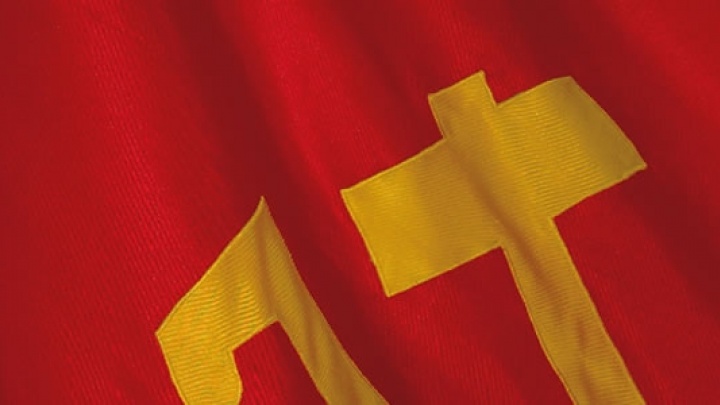Translated "Avante!" article by Angelo Alves, Member of the Political Committee of tthe CC and Member of the International Department
The tragic events in the Marikana mine, in South Africa, which outcome resulted in the death of many miners, unionists and policemen, are serious and have an unquestionable political importance.
For what they objectively represent, but also by the symbolic and political power they acquired within a country, historically marked by the apartheid violence. Violence which took place, and specially the police action, cannot but offer an expressive condemnation by forces, as the PCP, have a common cause , with the workers struggle, the defence of their rights and have always been side by side with that people’s struggle against social and racial oppression and by the achievement and deepening of the democratic and national revolution, initiated with the over throwing of the apartheid. But this unquestionable condemnation and solidarity expression to workers of the millionaire mine extraction industry ought not to, nor cannot, ignore these events real causes and the political situation evolution in South Africa and of their social and political forces.
Upon two decades on the South African people’s and the ANC’s victory, the major reason for all these events resides in the maintenance of a situation which, in multiple aspects, can be considered as “social apartheid”. Although the existence of some positive evolutions, serious problems persist, inherited from the racial segregation system, such as unemployment ( which in strict sense achieves about 25% of the population and in latu sensu around 40%) ; poverty ; high employment rate in the so-called “informal economy” ( around 40% of the employment) and, moreover, a huge inequality in the wealth and land reallocation , which carries on a very strong racial component.
Policies carried out by the ANC, in order to correct the asymmetries in wealth distribution, access to employment and land, together with the participation in the economic activity, although with the best of intentions, did not resolve these problems in the essential, and one of the features of the evolution since 1994, was the emergence of a new powerful black bourgeoisie, which in many cases, assumes the role of the “visible face” of the colonial powers great economic groups, which influence the South African state apparatus and , during the Mbeki “era” won importance within the ANC, introducing interior contradictions and amid one of the main pillars of the tripartite alliance: the powerful COSATU, the class trade-union, of which the NUM, the miner union, is affiliated, its next month’s congress will precede the ANC congress in December, and during which, the ANC’s current leadership( headed by Jacob Zuma) and policy will be discussed, and which, in many aspects broke off , although not totally, with the policies proceeded unto 2009.
In the light the complex and explosive South African situation; the contradictions and the clarification processes in progress amid the ANC and the COSATU; some South African workers strata black population frustration regarding the ANC; the mining industry international companies action. in the attempt to dynamite the collective contract agreements, instigate divisions among the workers’ movement and finance populist trade-unions, such as the AMCU ( that some identify as holding a tribal nature and for several times, were accused of arising violence among workers), one ought to analyse the Marikana events. Events which, stand on a real frustration and revolt basis of over-exploited workers, suggest to observe the presupposition of the social and political orchestration in order to open up space for populism and “smash” the tripartite alliance via the COSATU debility, an important strategy for whom had in mind to jeopardize or subject the developments amid the ANC. Events which, once again prove, the major role of the workers’ class in societies and political evolution, and advise never to forget imperialism’s action which, as proved in Zimbabwe’s recent history, always attempted to create and profit from difficulties and mistakes in order to defer the African decolonizing history.

